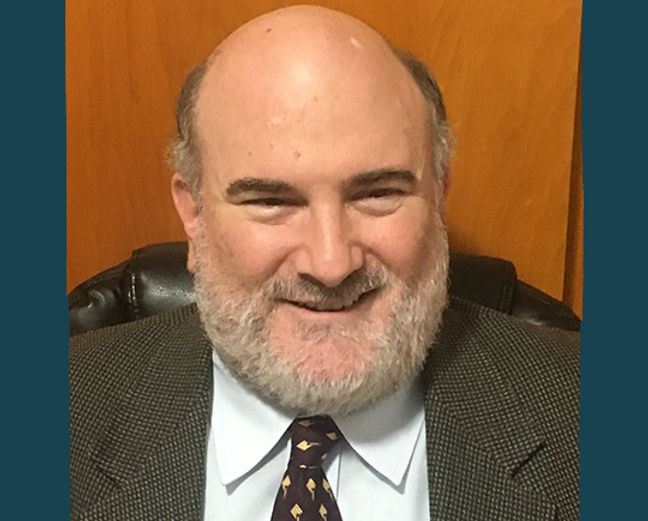Gregory Milton, 1966–2021

The American Academy of Research Historians of Medieval Spain would like to remember Gregory Milton, who passed away, tragically, on December 7, 2021, at the young age of fifty-four. While Greg came to Iberian and Mediterranean medieval history after an abbreviated career as a naval officer, he quickly established an international reputation as a highly productive researcher on economic, social, and Jewish history and world-renowned authority on notarial sources.
Born in San Jose, California, on December 24, 1966, Greg spent his earliest childhood in Boca Raton, Florida, before his family returned to California. He attended elementary, junior high, and high school in the coastal city of Santa Cruz. Greg’s mother, Linda Rose, remembers how he became increasingly curious, around the second grade, about his Jewish heritage thanks largely to a Jewish friend. This interest eventually encouraged him to join the local temple and have his bar mitzvah. Greg, she remembers, was “an avid player of Dungeons and Dragons and also interested in the history and royalty of England,” early attractions that later “spurred his career direction.”
A love of airplanes and flying encouraged Greg to attend UC Berkeley on a naval scholarship. Immediately after graduating, he became an ensign in the navy. However, because he needed prescription eye glasses, he was ineligible to be a pilot and instead opted to serve as a flight officer in charge of electronic aerial reconnaissance. Greg was eventually stationed at an air base near Cádiz, an assignment that enabled him to travel widely throughout the Mediterranean. These years of exploration prompted Greg’s growing interest in medieval Spanish and Mediterranean history. He later transferred to Annapolis, Maryland, where he had the opportunity to offer classes in world history and discover his love of teaching. At this point, Greg decided to heed his passions and steer his life in a new direction. He withdrew from the navy after eight years of service to pursue a Master’s in Medieval History at Catholic University in 1997, then continuing his studies at UCLA as Teo Ruiz’s first doctoral student. Greg opted to focus on the commercial and social history of the Catalonian village of Santa Coloma de Queralt using its richly detailed and complex notarial records housed today at the Arxiu de Protocols de Tarragona. During his time living in coastal Tarragona, a city that was reminiscent of his beloved hometown of Santa Cruz, Greg developed a fluency in Catalan and became an expert on a wide range of local historical sites, which he enjoyed touring with visitors. He successfully defended his dissertation, entitled “Commerce, Crisis, and Society in a Medieval Village: Santa Coloma de Queralt, 1294-1313,” in 2005. Teo remembers Greg fondly as “an adult in every sense of the word. He was an indefatigable researcher, rendering his findings in brilliant and incisive fashion.”
Greg’s extraordinary performance at UCLA quickly earned him a visiting professorship at Marquette University followed by a tenure-track appointment at the University of South Florida (USF) in Tampa, where he impressed students and colleagues alike with his innovating teaching and dedicated mentorship. During his time at these institutions, Greg presented at numerous conferences, produced an array of articles in respected journals and edited volumes, received prestigious fellowships and awards (such as the Solmsen Fellowship at the Institution for Research in the Humanities at the University of Wisconsin-Madison), and published his path-breaking monograph on Santa Coloma de Queralt’s local economy entitled Market Power: Lordship, Society, and Economy in Medieval Catalonia, 1276-1313 (Palgrave Macmillan, 2012), a fascinating study of a formerly little known rural commercial system that is now widely known as an indispensable resource among scholars of economic and social history alike.
Part of Greg’s appeal to his students and colleagues was that his interests were not simply confined to premodern history. He was an avid reader of other periods of history as well as politics and science fiction and shared a love of Jane Austen with his doctoral advisor. In his diverse roles at USF, he grew especially interested, his mother recalls, “in the non-traditional student who couldn’t afford the traditional four-year, on-campus programs.” He believed strongly that “universities should spend their money on educational innovations and meeting student needs rather than on another lecture hall.” Accordingly, after seven years at USF, Greg decided to listen to his heart once again and left the research track in order to devote himself fully to developing and implementing innovative educational programs. He opted to focus on improving extended learning, serving as a director first at the University of Oregon and then at Sonoma State University, a position that enabled him to return to his beloved native state of California.
In 2019, Greg joined several colleagues to found Tarragona Associates, named in honor of Greg’s enduring connection to his adoptive home in Catalonia, which offered consulting services to universities and colleges aimed at helping them navigate the mounting challenges facing higher education. Greg was instrumental in directing and growing this new enterprise, which, shortly before his death, had just succeeded in winning a major contract with Savannah State University in Georgia. While the growing success of this project was exciting for Greg, one of the best aspects of working with Tarragona Associates over these past two years was that it enabled him to return home and spend more time with his mother.
It is fair to say that Teo Ruiz speaks for all of us at the Academy in expressing that Greg “was an affable and friendly person, a man of integrity. He left us far too early and for that we are diminished.” We join Teo in honoring Greg’s memory as a jovial colleague, diligent researcher, and beloved teacher and will miss him dearly.
-- Tom Barton
AARHMS President